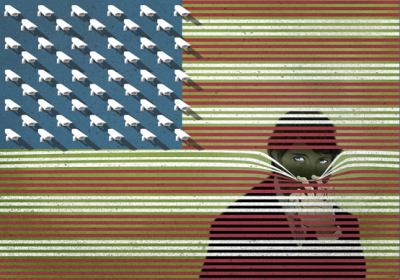Police State: US Government-Funded Database Created to Track “Subversive Propaganda” Online

The creation of the Truthy database by Indiana University researchers has drawn sharp criticism from free-speech advocates and others concerned over government censorship of political expression.
According to the award abstract accompanying the funding provided by the National Science Foundation (NSF), the Truthy project aims to demonstrate “why some ideas cause viral explosions while others are quickly forgotten.” In order to answer this and other questions, the resulting database will actively “[collect] and [analyze] massive streams of public microblogging data.”
Once the database is up and running, anyone can use its “service” to monitor “trends, bursts, and suspicious memes.” Several of the researchers suggested that the public will be able to discover the use of “shady machinery” by election campaigners who push faulty information to social media users to manipulate them politically.
As a seeming afterthought, the abstract concludes that this open-source project “could mitigate the diffusion of false and misleading ideas, detect hate speech and subversive propaganda, and assist in the preservation of open debate.”
This last statement provoked widespread criticism as troubling and even Orwellian. Right-wing media outlets Fox News and the Washington Timesattacked the reference to “hate speech,” in which they specialize, without highlighting the reference to “subversive propaganda,” a term of abuse usually reserved for left-wing criticism of American government and society.
While the leaders of this government-funded operation have sought to fend off attacks with the explanation that this database is merely designed to study the diffusion of information on social media networks, there is no mistaking the repressive overtones of the project.
Filippo Menczer, the project’s principal investigator and a professor at Indiana University, has responded to allegations by issuing a statement through the Center for Complex Networks and Systems Research, explaining that Truthy is not “a political watchdog, a government probe of social media,” or “an attempt to suppress free speech.” He states that Truthy is incapable of determining whether a particular scrap of data constitutes “misinformation,” and reiterates the notion that “target” is the mere study of “patterns of information diffusion.”
However, within the same statement, Menczer also echoes the abstract’s final conclusion, stating that “an important goal of the Truthy project is to better understand how social media can be abused.” This seems to contradict the claim that the database is focused only on how information is diffused, rather than its content.
Results of the project have already been widely published in peer-reviewed journals and have been presented at several conferences around the world. One of these studies shows how the researchers, including Menczer, studied the growth of Occupy Wall Street over a 15-month period. This was done by identifying Occupy-related content on Twitter and creating a dataset that “contained approximately 1.82 million tweets produced by 447,241 distinct accounts.”
In addition, the researchers also selected 25,000 of these users at random and monitored their behavior in order to study how these users may have changed over time. This effort included the compilation of the hashtags used by each user, their engagement with foreign social movements, and the extent to which these users interacted with one another.
In other words, while the creators of Truthy have presented their service as a means for the public to expose elected officials who inject misleading information into news feeds for electoral propaganda purposes, one of the primary uses is to track and keep tabs on individuals who engage in political discussions deemed “subversive” by US authorities. A previous report has already shown that local police departments were engaged in similar coordinated efforts to spy on Occupy protesters throughout the same 15-month period.
The revelations of Edward Snowden and WikiLeaks have shown the extent of domestic spying of national governments on their own citizens and the erosion of Constitutional rights to privacy and freedom of expression. Despite Menczer’s claim that the system was not “designed” to be a government watchdog program, there is no assurance that this project will not be used for that purpose.
The 25,000 Twitter users who were studied and tracked by the project’s developers certainly did not give permission to have their behaviors and tweets recorded and studied. Truthy will enable anyone, including federal officials, to similarly track and follow the actions of groups and individuals deemed to be “diffusing” ideas labeled as “misleading.” The fact that the United States government has already contributed more than $900,000 to this project only exacerbates this fear.

